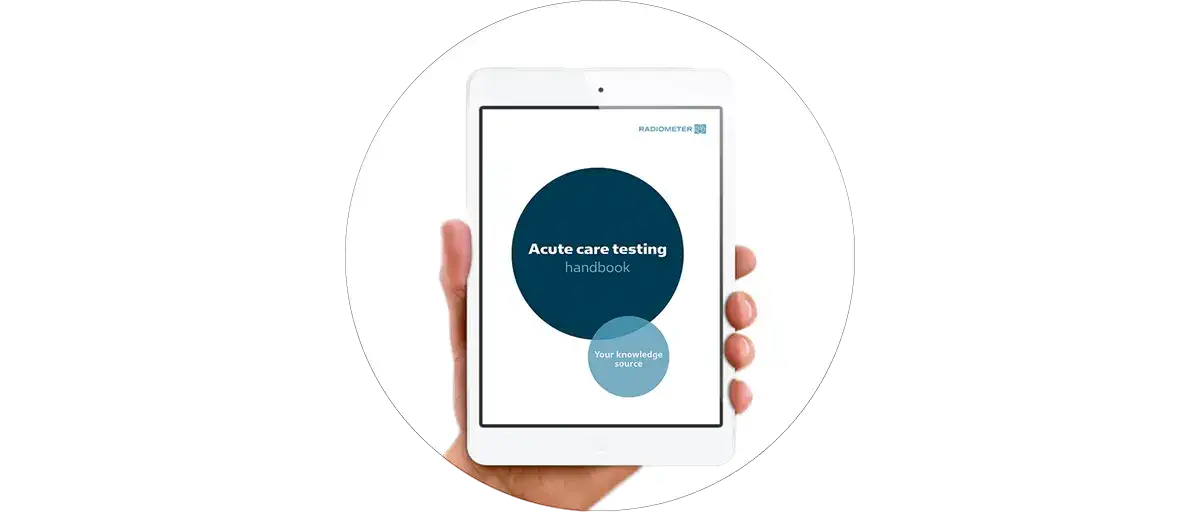
Scientific knowledge site
acutecaretesting.org is a Radiometer-sponsored scientific knowledge site that combines scientific literature with daily practice on topics relevant to acute care testing
On acutecaretesting.org you will find articles on clinical issues written by international experts and healthcare professionals such as physicians, clinical chemists, point-of-care coordinators, nurses, laboratory professionals and respiratory therapists.
This ensures a high level of quality and relevance on topics surrounding acute care testing.
Check out the acutecaretesting.org knowledge site or sign up for the quarterly acutecaretesting.org newsletter.
Knowledge creating value
Topics covered on acutecaretesting.org:
- Blood gases, electrolytes, glucose, lactate and creatinine
- Cardiac markers, hemostasis/coagulation and sepsis
- Point-of-care testing, process optimization and information management
- Quality assurance, prevention of preanalytical errors and the analytical process
acutecaretesting.org is often referenced in publications and conferences as a source of information and has more than 27,000 users and over 21,000 subscribers worldwide.
Cookies are used on this website
Use of cookiesPlease enter a valid email
We will be sending an e-mail invitation to you shortly to sign in using Microsoft Azure AD.
It seems that your e-mail is not registered with us
Please click "Get started" in the e-mail to complete the registration process
Radiometer is using Microsoft AZURE Active Directory to authenticate users
Radiometer uses Azure AD to provide our customers and partners secure access to documents, resources, and other services on our customer portal.
If your organization is already using Azure AD you can use the same credentials to access Radiometer's customer portal.
Key benefits
- Allow the use of existing Active Directory credentials
- Single-sign on experience
- Use same credentials to access future services
Request access
You will receive an invitation to access our services via e-mail when your request has been approved.
When you accept the invitation, and your organization is already using AZURE AD, you can use the same credentials to access Radiometer's customer portal. Otherwise, a one-time password will be sent via e-mail to sign in.



